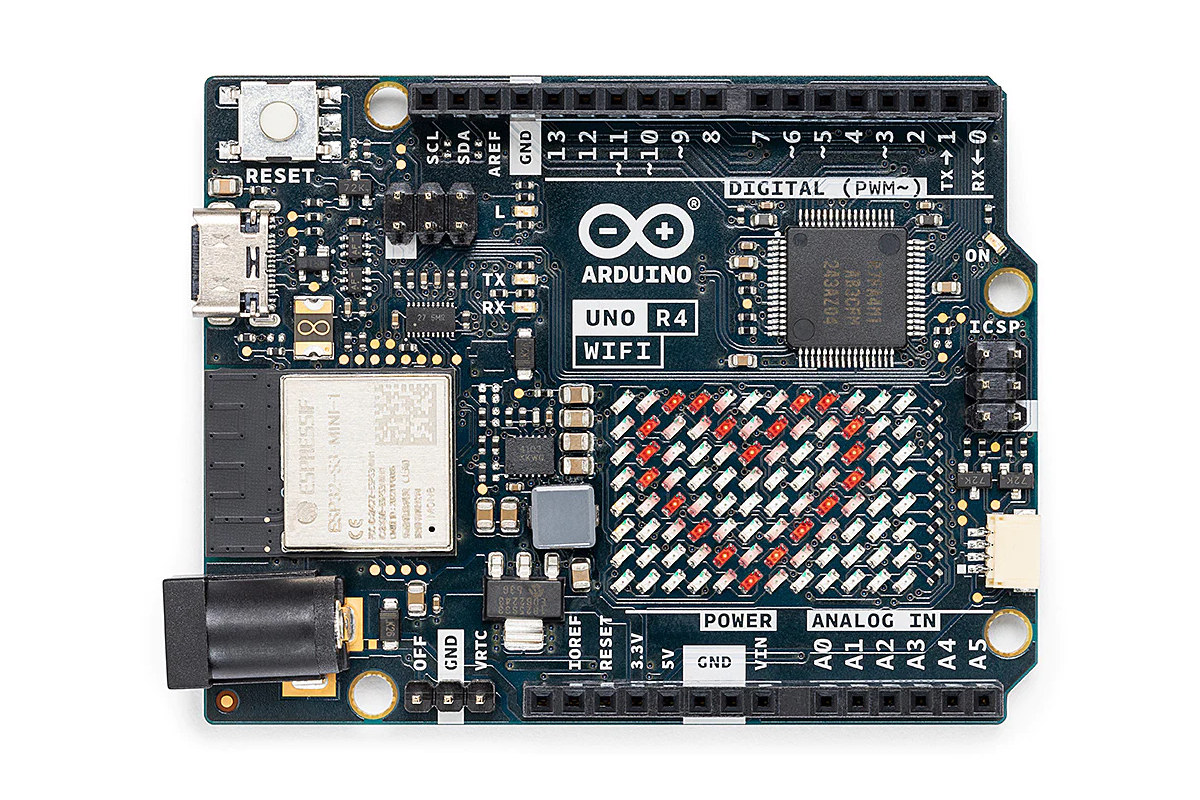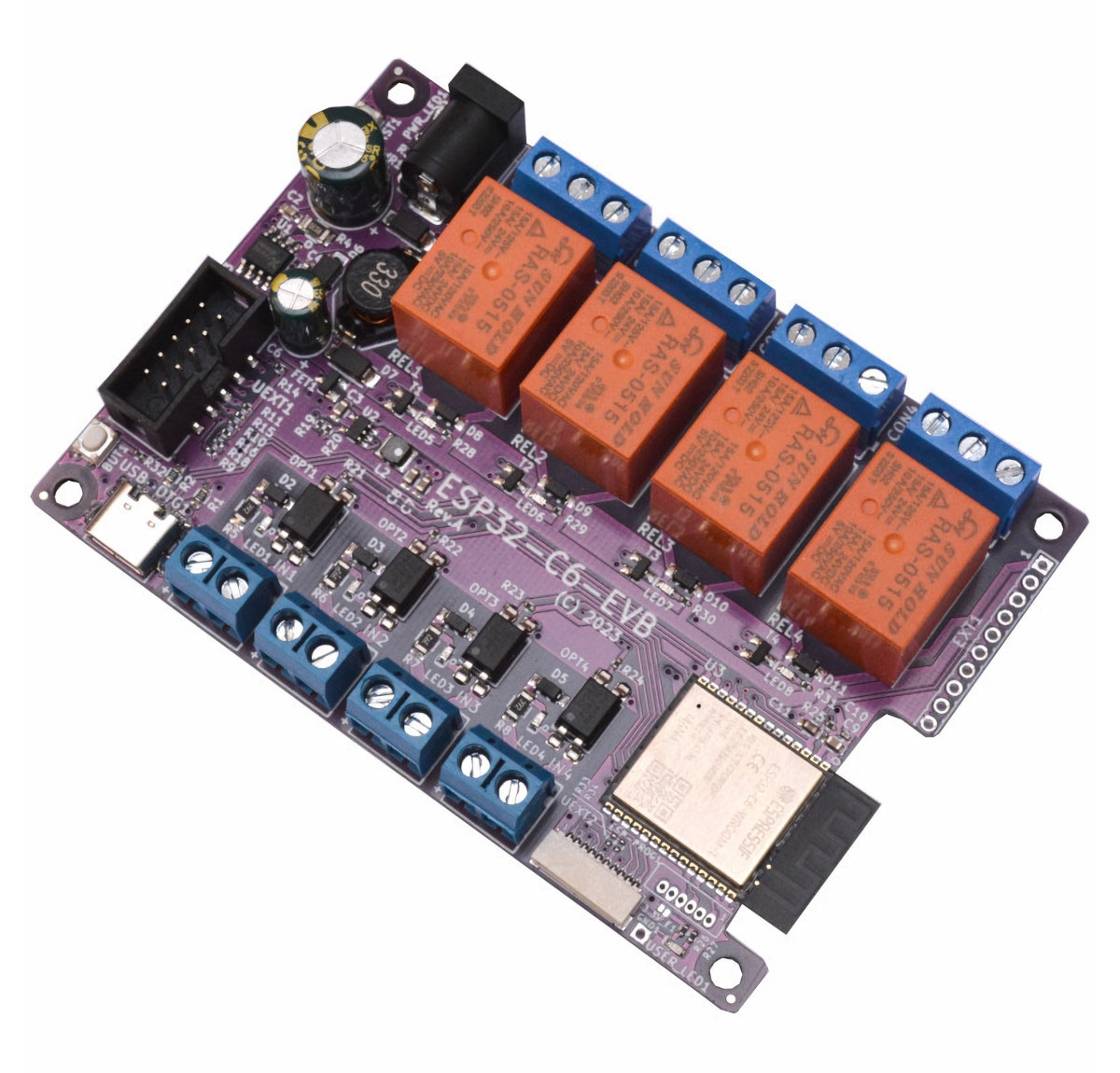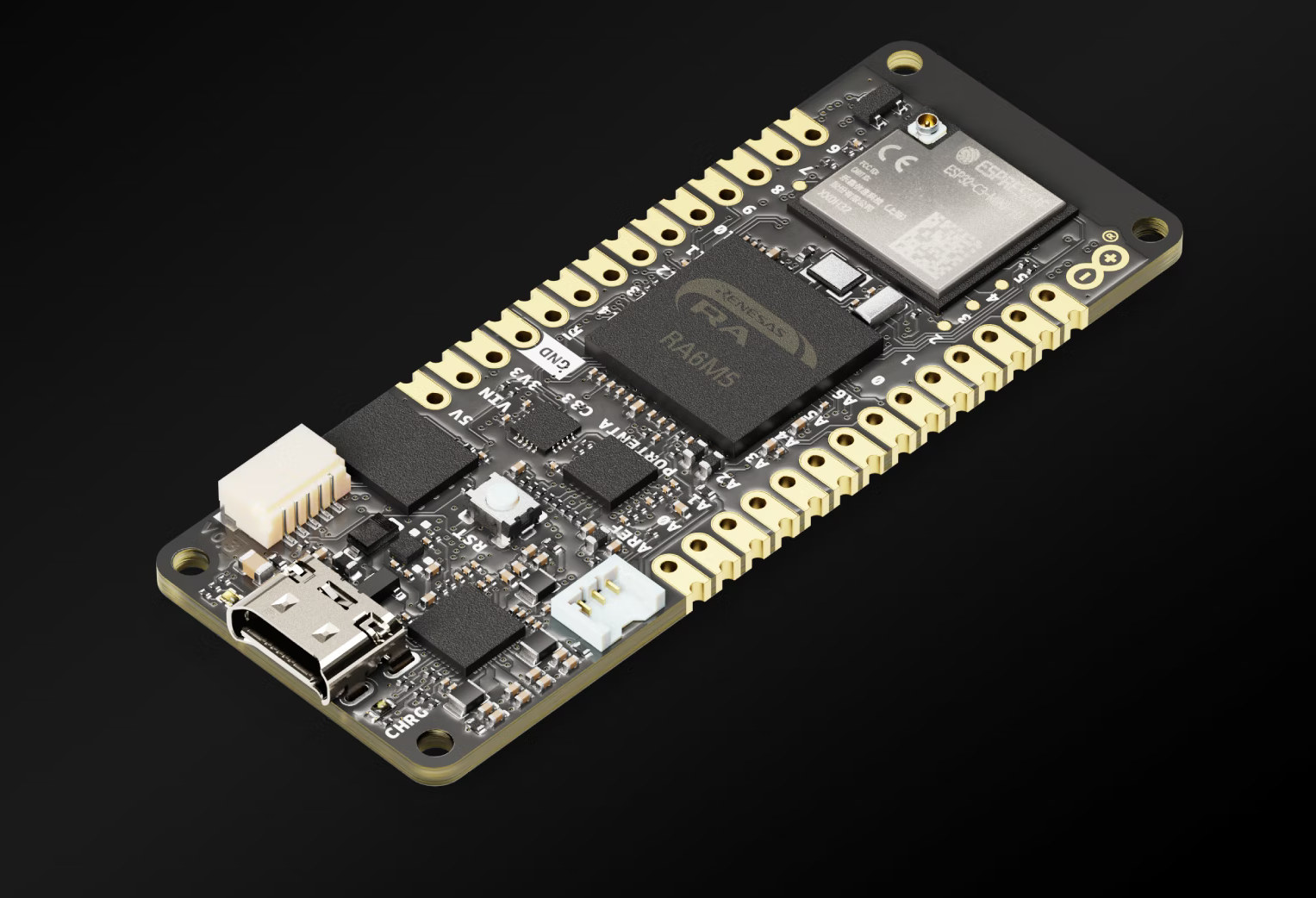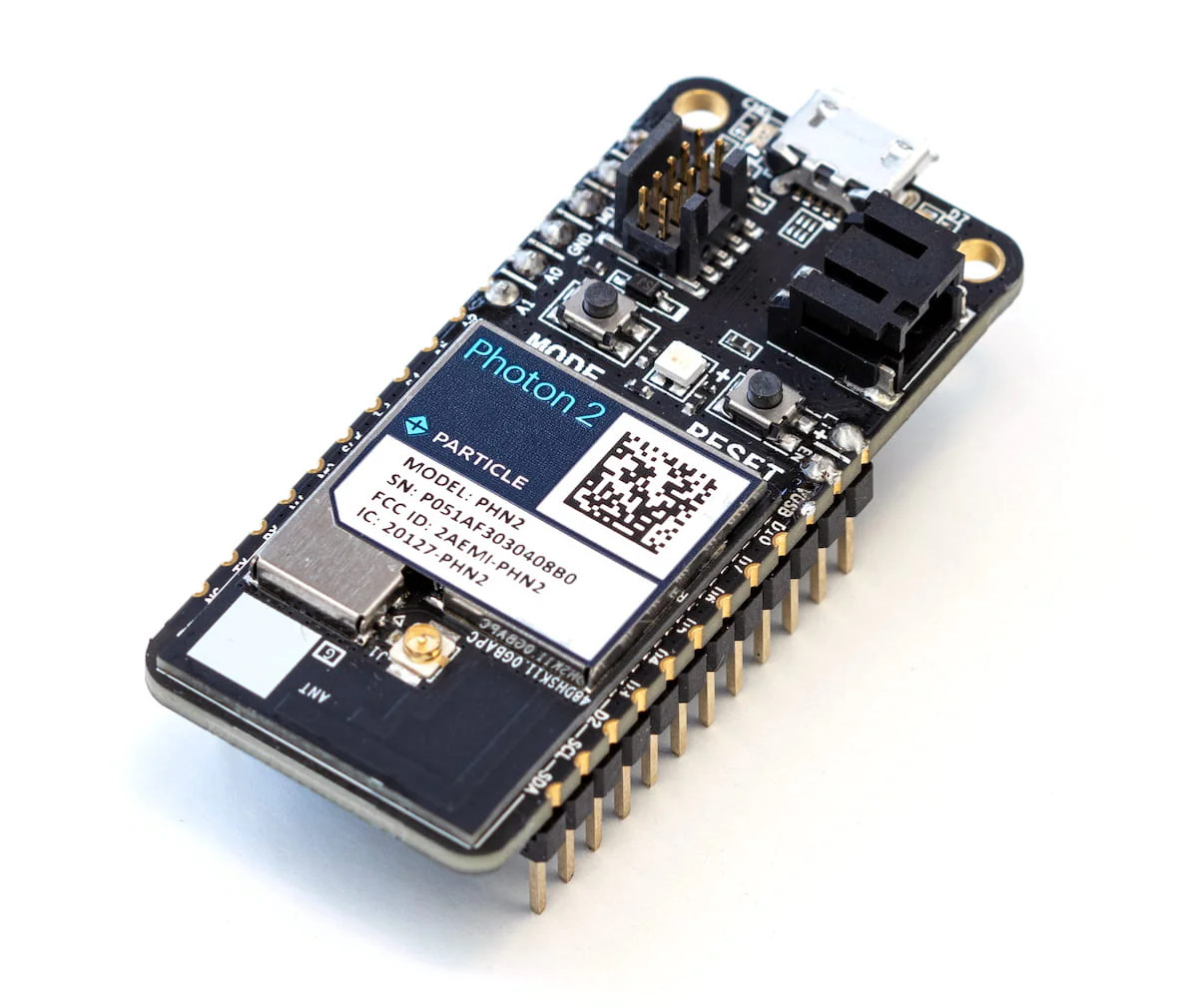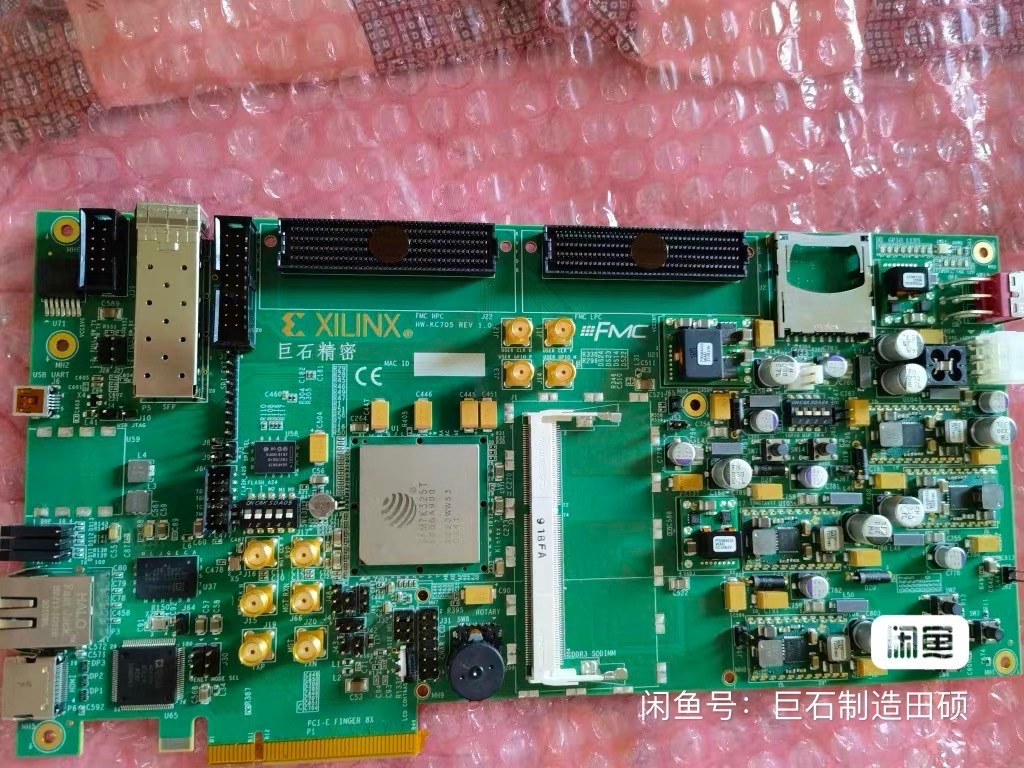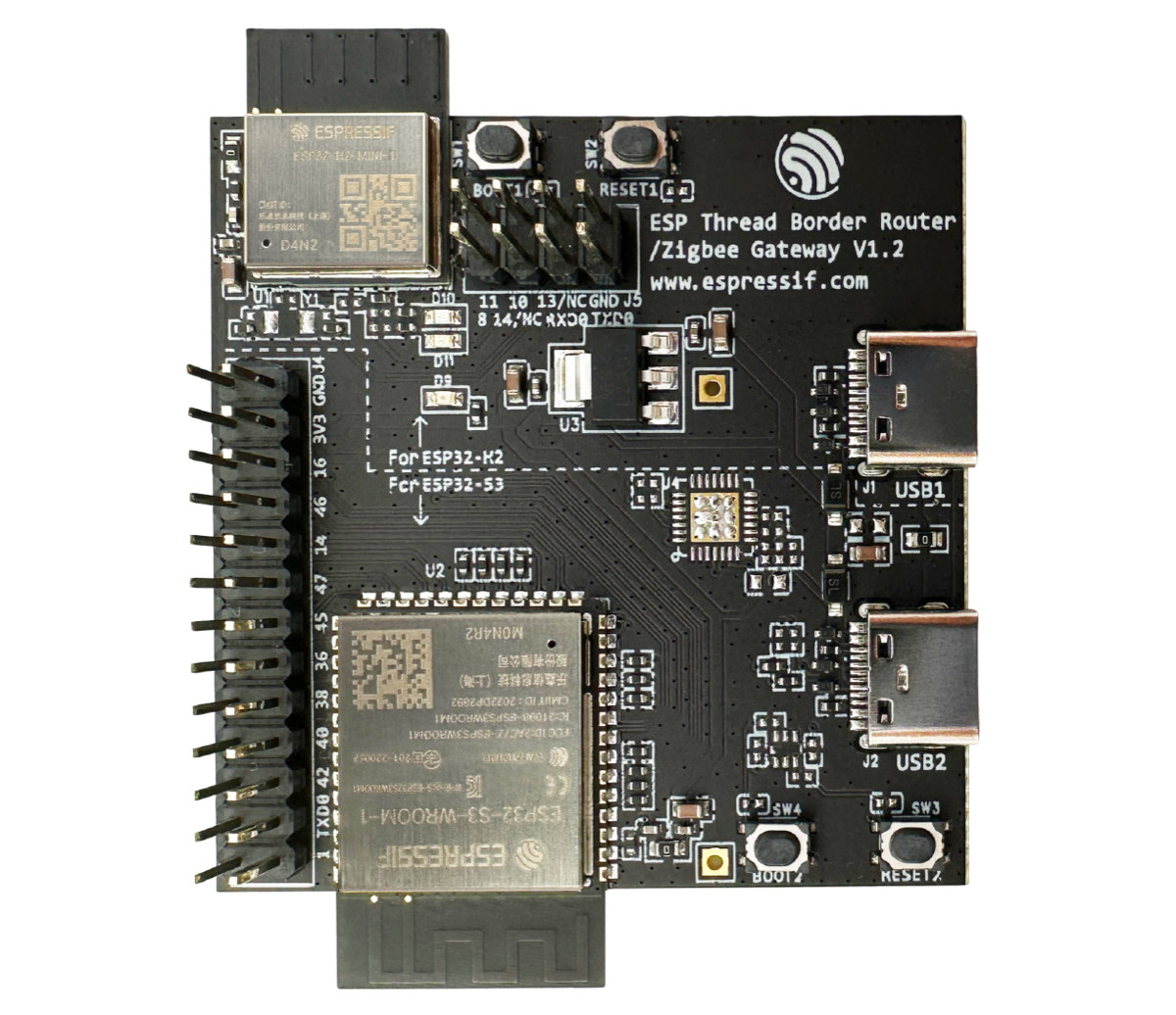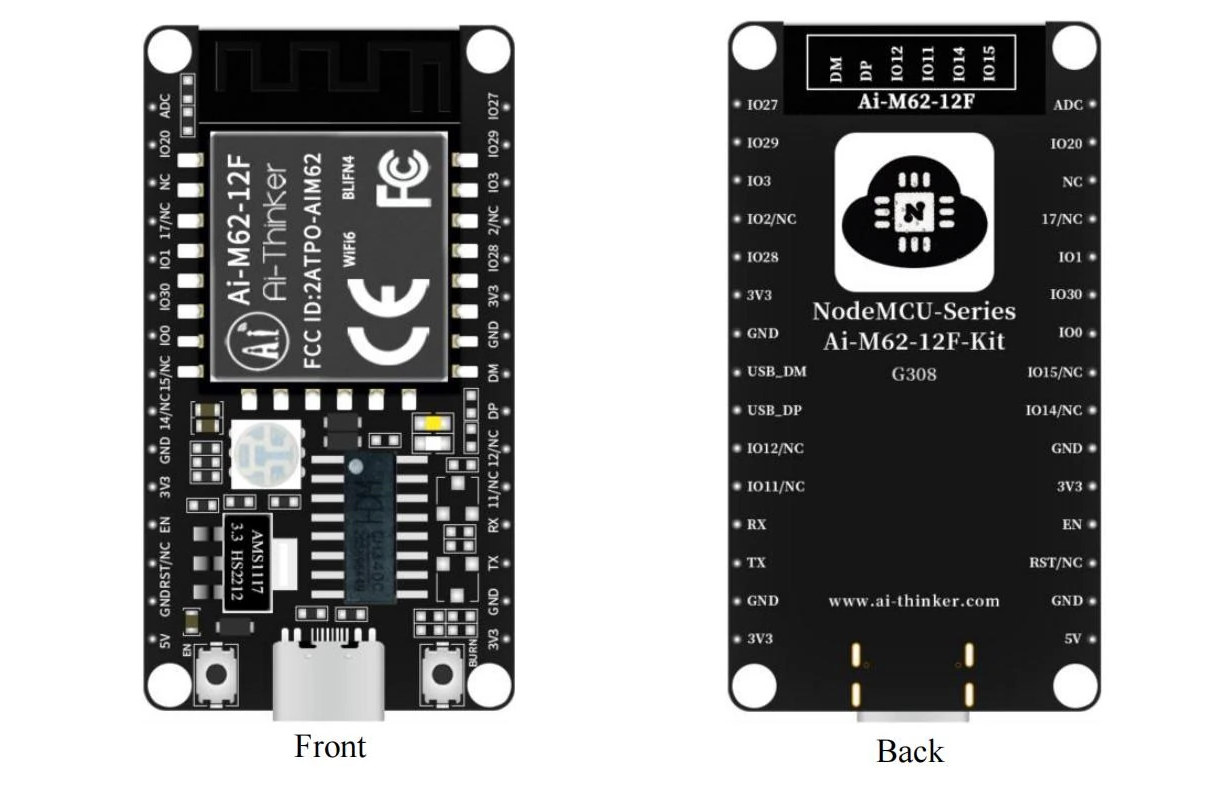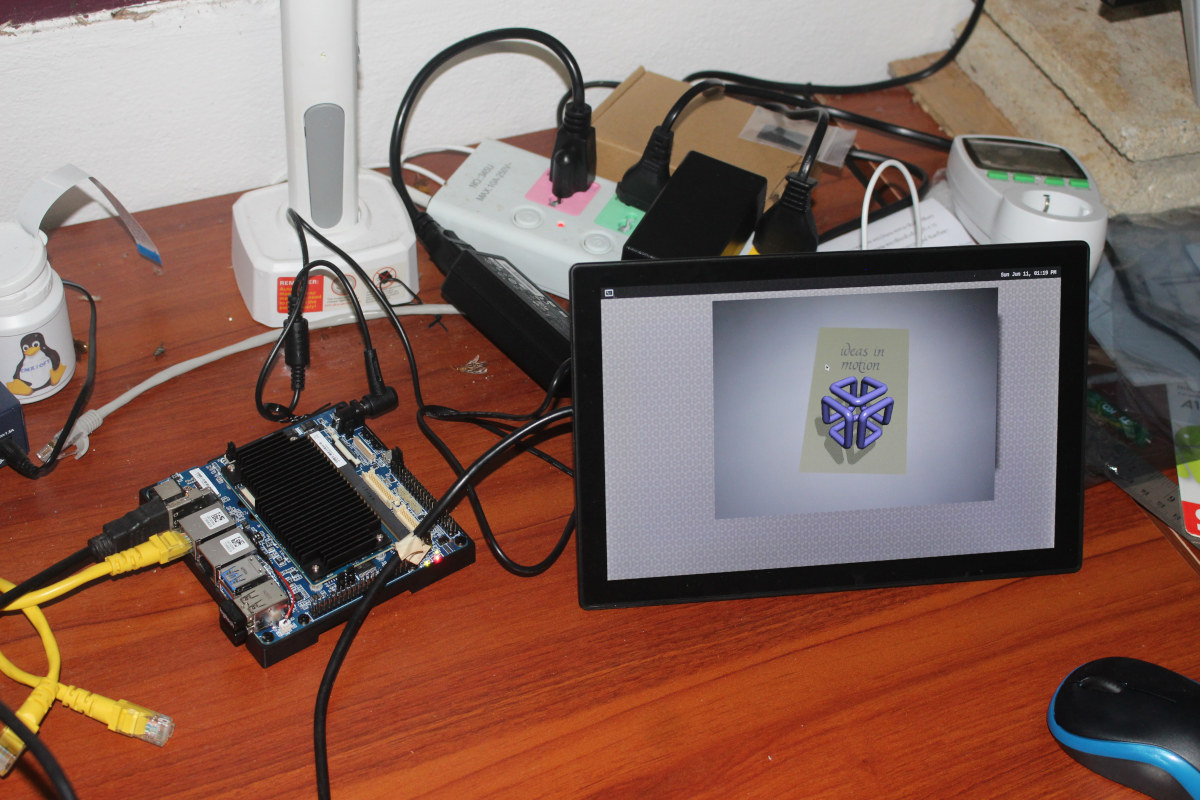Arduino UNO R4 Minima and WiFi boards powered by a Renesas RA4M1 32-bit Arm Cortex-M4F microcontroller and equipped with an optional ESP32-S3 WiFI & BLE module are now available for respectively $20 (18 Euros) and $27.50 (25 Euros) on the Arduino store. The Arduino UNO R4 Renesas RA4M1 board was initially unveiled during Arduino Day with most details, but not everything as the company had hidden one part of the board which we now know is for a 12×8 LED matrix and a Qwiic connector for expansion present on the UNO R4 WiFi only. Arduino UNO R4 specifications: Microcontroller – Renesas RA4M1 Arm Cortex-M4F MCU @ 48 MHz with 32KB SRAM, 256KB flash Wireless (Arduino UNO R4 WiFi only) – ESP32-S3-MINI-1 module based on ESP32-S3 dual-core Xtensa LX7 microcontroller with 512KB SRAM, 384KB ROM, WiFi 4 and Bluetooth 5.0 connectivity, PCB antenna Display (UNO R4 WiFi only) – 12×8 LED […]
Olimex ESP32-C6-EVB supports WiFi 6, BLE, Zigbee, comes with four relays, four opto-isolated inputs
Olimex ESP32-C6-EVB is an open-source hardware board based on an ESP32-C6 wireless module with 2.4 GHz WiFi 6, Bluetooth LE, and Zigbee connectivity, and offering four relays and four opto-isolated inputs, as well as further expansion via two UEXT connector. So far we had a limited amount of third-party ESP32-C6 boards, with Espressif making their own module and development board available in January, and 01Space launching a tiny ESP32-C6 board in April, a time when a lot of software work was still needed. But the ESP-IDF v5.1 with ESP32-C6 support is nearing release (now RC2), and the Olimex board may mark the start of greater availability of ESP32-C6 hardware with stable/usable firmware. ESP32-C6-EVB specifications: Wireless module – ESP32-C6-WROOM-1-N4 module with Espressif Systems ESP32-C6 single core 32-bit RISC-V processor @ 160 MHz with 2.4 GHz WiFi 6 1T1R with Target Wake Time (TWT) support, Bluetooth LE 5.0, and 802.15.4 radio for […]
Portenta C33 is a $64 Arduino Pro board based on Renesas RA6M5 Arm Cortex-M33 MCU
Arduino Portenta C33 is the latest board from the Arduino Pro family which the company dubs a “high-performance, low-price” solution based on a 200 MHz Renesas RA6M5 Arm Cortex-M33 microcontroller and equipped with a ESP32-C3 Wi-Fi and Bluetooth Low Energy module. The new board provides a cost-effective alternative to the Portenta H7 and X8 boards, but still offers wireless connectivity, a secure element for industrial-grade security, and compatibility with Portenta, MKR, and Nicla components. Portenta C33 specifications: Microcontroller – Renesas R7FA6M5BH2CBG Arm Cortex-M33 microcontroller @ up to 200 MHz with 512KB SRAM, 2MB Flash, Arm TrustZone, and Secure Crypto Engine 9 Storage – 16 MB QSPI Flash Connectivity 10/100M Ethernet PHY ESP32-C3 WiFi and BLE module USB – 1x USB Type-C high-speed port with Power Delivery support I/Os via 2x 80-pin high-density connectors, Arduino MKR headers with castellated hole, and a 5-pin I2C connector Storage – SD Card Networking – […]
Particle launches Photon 2 Realtek RTL8721DM dual-band WiFi and BLE IoT board, Particle P2 module
Particle has launched the Photon 2 dual-band WiFi and BLE IoT board powered by a 200 MHz Realtek RTL8721DM Arm Cortex-M33 microcontroller, as well as the corresponding Particle P2 module for integration into commercial products. The original “Spark Photon” WiFi IoT board was launched in 2014 with an STM32 MCU and a BCM43362 wireless module, but the market and company name have changed since then, and Particle has now launched the Photon 2 board and P2 module with a more modern Cortex-M33 WiFi & BLE microcontroller with support for security features such as Arm TrustZone. Particle Photon 2 specifications: Wireless MCU – Realtek RTL8721DM CPU – Arm Cortex-M33 core @ 200 MHz Memory – 4.5MB embedded SRAM of which 3072 KB (3 MB) is available to user applications Connectivity – Dual-band WiFi 4 up to 150Mbps and Bluetooth 5.0 Security Hardware Engine Arm Trustzone-M Secure Boot SWD Protection Wi-Fi WEP, […]
Fudan Micro JFM7K325T is a clone of AMD Embedded Kintex 7 325T FPGA
Shanghai Fudan Microelectronics Group, also known as FMSH, has designed a clone of the AMD Embedded (previously Xilinx) Kintex 7 325T FPGA found in some boards and modules in mainland China. We are used to seeing clones or fakes of the STM32 microcontrollers, but somebody called “whatever” on Twitter noted a full-featured board based on a clone of the Kintex-7 325T FPGA with 326,080 LUTS and 16 transceivers. Twitter users were quick to point out the board was based on Fudan Micro JFM7K325T, and that it was indeed a clone of the Kintex 7 325T FPGA. The company describes itself as a “domestic leading company specializing in the design, development, production (testing), and system solution provision of super-large-scale integration”, but the company’s website does not have any information about the JFM7K325T chip. I could not find the board above online, but I still found MagicChips’ MC-JFM7K325T core board based on […]
Espressif ESP Thread Border Router board combines ESP32-H2 & ESP32-S3 wireless chips
Espressif Systems has launched the ESP Thread Border Router/Zigbee Gateway board based on ESP32-H2 (802.15.4) and ESP32-S3 (WiFi + BLE) modules following the contention of the Thread Interoperability Certificate V1.3 for the board and associated ESP Thread Boarder Router SDK built on top of the ESP-IDF framework and the open-source OpenThread protocol stack. The ESP Thread Border Router supports the protocol functions of the 1.3 Thread standard such as bidirectional IPv6 connectivity, Service Discovery Delegate, Service Registration Server, Multicast Forwarding, NAT64, and more, as well as product-level features such as a Web GUI for device configuration, automatic RCP (Radio Co-Processor) upgrade, RF coexistence, and so on. ESP Thread Border Router/Zigbee Gateway board specifications: Wireless modules ESP32-S3-WROOM-1 wireless module SoC – ESP32-S3 dual-core Tensilica LX7 microcontroller @ 240 MHz with 2.4 GHz 802.11n WiFi 4 and Bluetooth 5.0 LE connectivity Memory – 2MB PSRAM Storage – 4MB SPI flash PCB antenna […]
$5 Ai-M62-12F-Kit RISC-V development board features BL616 WiFi 6, BLE 5.2, and Zigbee MCU, plenty of I/Os
Ai Thinker Ai-M62-12F-Kit is a development board based on Bouffalo Lab BL616 RISC-V microcontroller with 2.4 GHz WiFi 6, Bluetooth 5.2 LE, and an 802.15.4 radio (Zigbee/Thread), plus thirty I/O pin for expansion. We had already covered the tiny Sipeed M0S module based on BL616 MCU earlier this year along with its M0S dock board that exposed eight GPIO pins via a 12-pin header, and the “NodeMCU” Ai-M62-12F basically offers the same features but with many more I/Os thanks to two 15-pin headers, as well as an RGB LED and two user-programmable LEDs. Ai-M62-12F-Kit specifications: MCU – Bouffalo Lab BL616 32-bit RISC-V (RV32IMAFCP) microcontroller @ up to 320 MHz (384 MHz overclocked) with 480KB SRAM, 4MB flash, 2.4 GHz WiFi 6, Bluetooth 5.2 dual mode, and 802.15.4 radio (Zigbee) Antenna – PCB antenna USB – 1x USB Type-C port for power and programming I/Os – 2x 15-pin headers with Storage […]
i-Pi SMARC 1200 (MediaTek Genio 1200) devkit tested with a Yocto Linux image
Last weekend I received ADLINK’s i-Pi SMARC 1200 development kit powered by MediaTek Genio 1200 Octa-core Cortex-A78/A55 AIoT processor, checked out the hardware and wanted to install the Yocto Linux image but stopped in my tracks because it looked like I had to install Ubuntu 18.04 first in a Virtual Machine or another computer. But finally, the documentation has been updated to clarify “Ubuntu 18.04 or greater” is required, and I had no problem flashing the image from a Ubuntu 22.04 laptop after installing dependencies and tools as follows:
|
1 2 3 4 5 6 7 8 9 10 |
$ sudo apt install android-tools-adb android-tools-fastboot $ echo 'SUBSYSTEM=="usb", ATTR{idVendor}=="0e8d", ATTR{idProduct}=="201c", MODE="0660", $ GROUP="plugdev"' | sudo tee -a /etc/udev/rules.d/96-rity.rules $ echo -n 'SUBSYSTEM=="usb", ATTR{idVendor}=="0e8d", ATTR{idProduct}=="201c", MODE="0660", TAG+="uaccess" SUBSYSTEM=="usb", ATTR{idVendor}=="0e8d", ATTR{idProduct}=="0003", MODE="0660", TAG+="uaccess" SUBSYSTEM=="usb", ATTR{idVendor}=="0403", MODE="0660", TAG+="uaccess" SUBSYSTEM=="gpio", MODE="0660", TAG+="uaccess" ' | sudo tee /etc/udev/rules.d/72-aiot.rules $ sudo udevadm control --reload-rules $ sudo udevadm trigger $ sudo usermod -a -G plugdev $USER $ pip3 install -U -e "git+https://gitlab.com/mediatek/aiot/bsp/aiot-tools.git#egg=aiot-tools" |
That’s it for the tools. Eventually, the development kit will support three images: Yocto Linux, Android 13 (July 2023), and Ubuntu 20.04 (Q3 2023). So that means only the Yocto Linux image is available from the download page at this time, and that’s what I’ll be using today. We’ll need to connect the micro USB to USB cable between the […]

